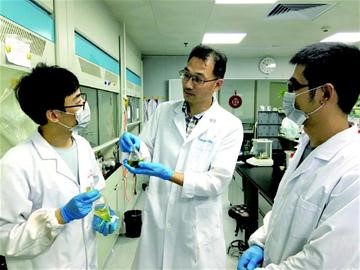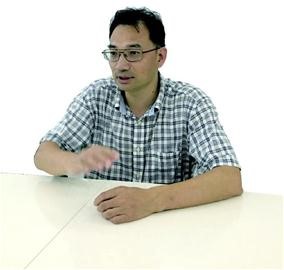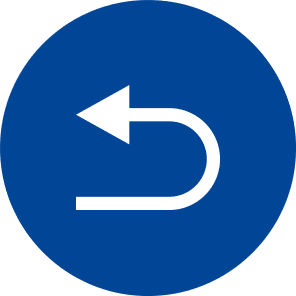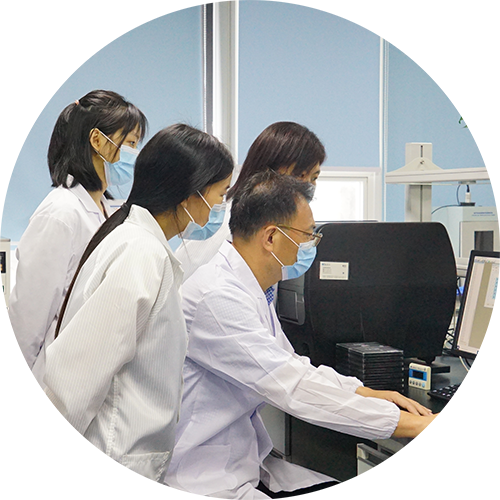News
Shenzhen's "God of Medicine" - Yihan Wang, who developed the anticancer drug ponatinib for leukemia
2018-08-03 Views:
Reporter Tao Huang, Intern Li Hao, August 3, 2018
Source: Shenzhen Shekou News A07 Edition: Special
Website: http://shekounews.com/Html/szbz/20180803/szbzA07.Html
Recently, the movie Dying to Survive caused an upsurge in movie watching. In addition to lamenting the fate of the leukemia patients in the movie, people cannot help but ask where is the way out for Chinese anticancer drugs?
In fact, there is a way out for Chinese anti-cancer drugs. In Nanshan, Shenzhen, there is a person, who served as the project leader of Ariad Pharmaceuticals in the United States to fully lead the research and development of the company’s new drugs, including international first-class new drugs: ponatinib, brigatinib, ridaforolimus (oral mTOR inhibitor under research), etc. When the third-generation anticancer drug ponatinib for leukemia, which was led by him and was the result of his 16 years of hard work, was successfully marketed in the United States, he discovered that the CML patients in China even cannot afford the first-generation anticancer drug for leukemia, but had to risk huge illegal costs to buy Indian “almighty drug” through various illegal channels. So, he resigned resolutely and returned to China with capital and technology to start his own business and developed the anti-cancer drugs for China.
It is now the fourth year. Although the company has encountered some difficulties in early R&D, the technological breakthroughs made in the past four years have made him extremely confident in the company's prospects: “In another four years, after passing the clinical trial and obtaining the approval of the National Medical Products Administration, our original Chinese anticancer drug for leukemia can be marketed. It will complete the feat that the previous three generations of anticancer drugs for leukemia failed to accomplish, that is, targeting the mutant gene to gradually cure leukemia.” He is China's “God of Medicine” - Dr. Yihan Wang, Chairman and General Manager of Shenzhen TargetRx Inc. His story tells us: Despite the hard journey, there is a way out for Chinese anticancer drugs!

Yihan Wang (middle) and his R&D team (Photo by Reporter Huang Tao / Shekou News)
Hungry for knowledge, hardship over twenty-four years of study
Yihan Wang was born in 1966 and his ancestral home is Jingzhou, Hubei. He has loved learning since he was a child, and has excellent grades. In 1981, he was admitted to Jingzhou Middle School with the second place in Jingzhou area. In 1984, when faced with the decision of getting to university, many students around him chose normal universities or technical secondary schools, but he was hungry for knowledge and wanted to do scientific research. He resolutely applied for the University of Science and Technology of China, where he studied for five years of undergraduate and three years of postgraduate studies; in 1992, he traveled across the ocean to the New York University in the United States, where he studied for a Ph.D. in chemistry for five years.
In this way, a young man from a village in China came to the United States when he was 24 years old to complete his Ph.D. in chemistry. He humbly said, “I'm just a nerd who dives into science.”
Able to conduct R&D independently with16 years of overseas anti-cancer drug R&D experience
In 1997, Dr. Yihan Wang graduated and came to Ariad Pharmaceuticals, a listed pharmaceutical company in the United States, where he stayed for 16 years. He successively served as the company's senior scientist, chief scientist, and deputy chemical director. He has always been the company's core figure in the field of targeted new drug R&D. He has been awarded Milestone Achievement Award by the company for his outstanding contributions many times. Since then, as the project leader, he has fully led the R&D of the company’s new drugs, including the international first-class new drugs ponatinib, brigatinib, ridaforolimus, etc. During this period, he invented 27 core invention patents for new anti-cancer drugs, which were all authorized, and published more than 60 papers in internationally renowned academic journals and conferences.
As an overseas Chinese who has made considerable achievements in the medical field, Yihan Wang took the initiative to take the responsibility of liaising with overseas Chinese in the industry. In 2007, he participated in the establishment of the Chinese American Biomedical Association (CABA). He is also one of the main sponsors of the Alliance of Chinese-American Biotechnology and Pharmaceutical Associations (All-CABPA), and the co-founder of Sino-American Pharmaceutical Professionals Association–New England (SAPA-NE). During the establishment of the association, he did a lot of work to promote the exchange of biomedicine between the United States and China.
In the 16 years of working in Ariad Pharmaceuticals, Yihan Wang, who is eager for knowledge, walked into the world's cutting-edge laboratory, learned experience, tempered the technology, and was finally able to carry out his own anti-cancer drug research on his own.

Dr. Yihan Wang accepted an exclusive interview of Shekou News. (Photo by Reporter Huang Tao)
Caring a lot about his homeland and returning to China to develop China's first-in-class anti-cancer drugs
In 2013, When the third-generation anticancer drug ponatinib for leukemia, which was led by him and was the result of his 16 years of hard work, was successfully marketed in the United States, he found that the vast majority of CML patients in China could not afford the expensive life-saving drug and had no choice but to give up the treatment. Only then did he realize that he had left his hometown for more than 20 years and although he learned knowledge and technology in these years, the homeland has fallen behind: the homeland needs him.
Therefore, he resigned resolutely, put aside the targeted drug brigatinib for lung cancer, which has entered a key phase II clinical trial, left his wife and children in the United States, and returned to China with capital and technology to start his own business to develop his own anticancer drugs for China.
Knowing that such a doctor would return from overseas to develop anticancer drugs for China, the leaders of the Nanshan District Education Bureau welcomed him warmly and said with earnestness, “Though I may not be able to help you in other things, I can solve the problems of your children’s education.” Although Yihan Wang's children had already settled in the United States at that time, he thought if the official of a local government department has even considered the education of the children of returnees, then there must have been corresponding assistance policies for starting up a business here. After the inspection, he was deeply attracted by Nanshan's superior scientific research and innovation environment. With the help of various departments of the district government, he soon founded Shenzhen TargetRx Inc. and started the arduous journey of developing Chinese anti-cancer drugs in Nanshan Science and Technology Park.
Vowing to turn cancer back into a chronic disease with inheritance
Cancer is a very ancient disease, and was recorded in the ancient Egyptian literature. Although humans were not opponents of cancer at the time, humans have learned to inherit. Human civilization has been passed on for thousands of years, and the fight between mankind and cancer has continued for thousands of years. It was not until the huge breakthroughs in modern medical technology that mankind gradually lifted the veil of cancer. Gleevec, the first-generation drug for leukemia, was gradually developed in this way after passing down the painful scientific research of generations of scientists.
From the discovery of the Philadelphia chromosome in tumor cells in 1960, to the discovery in 1973 that the Philadelphia chromosome was caused by the translocation between chromosomes 22 and 9, then to the confirmation in 1982 that the Philadelphia chromosome caused CML, and next to the discovery in 1993 that the BCR-ABL tyrosine-kinase, an encoded protein by the fusion gene that causes CML, is the culprit that drives the growth of cancer cells, these four generations of scientists finally laid a solid theoretical foundation for the birth of the first generation anticancer drug for leukemia, Gleevec. Now there is only one step away: a compound that can block the action of the BCR-ABL tyrosine-kinase. But it is this step that is extremely difficult. Pharmaceutical companies have invested billions of funds and decades of energy, but still can’t determine whether this drug can effectively act on the human body. At one time, they wanted to abandon research, but with the insistence of several scientists, they finally succeeded in developing the anti-cancer drug, Gleevec.
Although Gleevec can effectively inhibit leukemia, drug resistance caused by as many as 158 base mutations appears after long-term use. For the second-generation anticancer drug nilotinib for leukemia, there is still 7 point mutations that confer resistance. Yihan Wang, who was still in the United States at the time, received the company's task: to lead the research and development of the third-generation anticancer drug for leukemia to completely solve the problem of drug resistance.
Although there are theoretical foundations and successful cases provided by the predecessors, in fact, the starting point is the same, which is to synthesize a new BCR-ABL tyrosine-kinase inhibitor. The process of Yihan Wang's synthesis of the new inhibitor is substantially similar to Edison's process of searching for the wick of an electric light bulb. It requires countless experiments and thousands of failures before the matching is successful. After synthesizing a new inhibitor, we must also consider how to effectively apply it to the human body, because there are hundreds of tyrosine kinases in the human body, and they will affect each other. In addition, a large number of clinical trials should be done to ensure the safety of users. Such a long R&D cycle and huge capital investment make R&D of new drugs inevitably a money-burning industry. From the time when Dr. Yihan Wang joined Ariad in 1997 to the time when the third-generation anticancer drug ponatinib for leukemia in 2013, it took a total of 16 years and several billion US dollars were spent in the research and development. Now, Yihan Wang has to raise all the money needed to develop the fourth-generation anti-cancer drug for leukemia. This is undoubtedly a great challenge for a scientist who focuses on scientific research.
However, Yihan Wang is confident. He said, “The fourth-generation anticancer drug for leukemia we developed will act on the target of the mutant gene on the basis of the previous three generations to gradually cure leukemia. Although the company currently has only a few dozen of employees, we have applied for more than 70 PCT international first-in-class drug patents in four years. The R&D of drugs has overcome key technical difficulties. It is expected that it will take another 3-4 years to complete clinical trials and obtain the approval of the National Medical Products Administration, and it will be mass-produced and marketed by 2022 at the latest.”
In addition to the fourth-generation anticancer drugs for leukemia, Yihan Wang is also actively developing new drugs for lung cancer and breast cancer, and major breakthroughs have been made. “In the past, patients with advanced lung cancer can only live for a year and a half at most, but with the experience in the development of targeted small molecule anticancer drugs, we can use the same principle to discover targets, synthesize inhibitors, and develop accurate and effective anti-cancer drugs for lung cancer, so that lung cancer patients can live for 5-10 years,” he said, “maybe five to ten years later, a new generation of anticancer drugs for lung cancer can gradually cure lung cancer.”
Yihan Wang said, “The struggle between humans and cancer is a process of turning cancer into a chronic disease and then gradually curing the chronic disease. This process is difficult and requires generations of inheritance, but there is no doubt that we will win in the end. TargetRx and I have a responsibility to take on this stick for China.”







 Tel: +86-0755-86934300
Tel: +86-0755-86934300 3rd Floor, Building A1, Kexing Science Park, No. 15 Keyuan Rd., Nanshan District, Shenzhen, China
3rd Floor, Building A1, Kexing Science Park, No. 15 Keyuan Rd., Nanshan District, Shenzhen, China E-mail:
E-mail: 